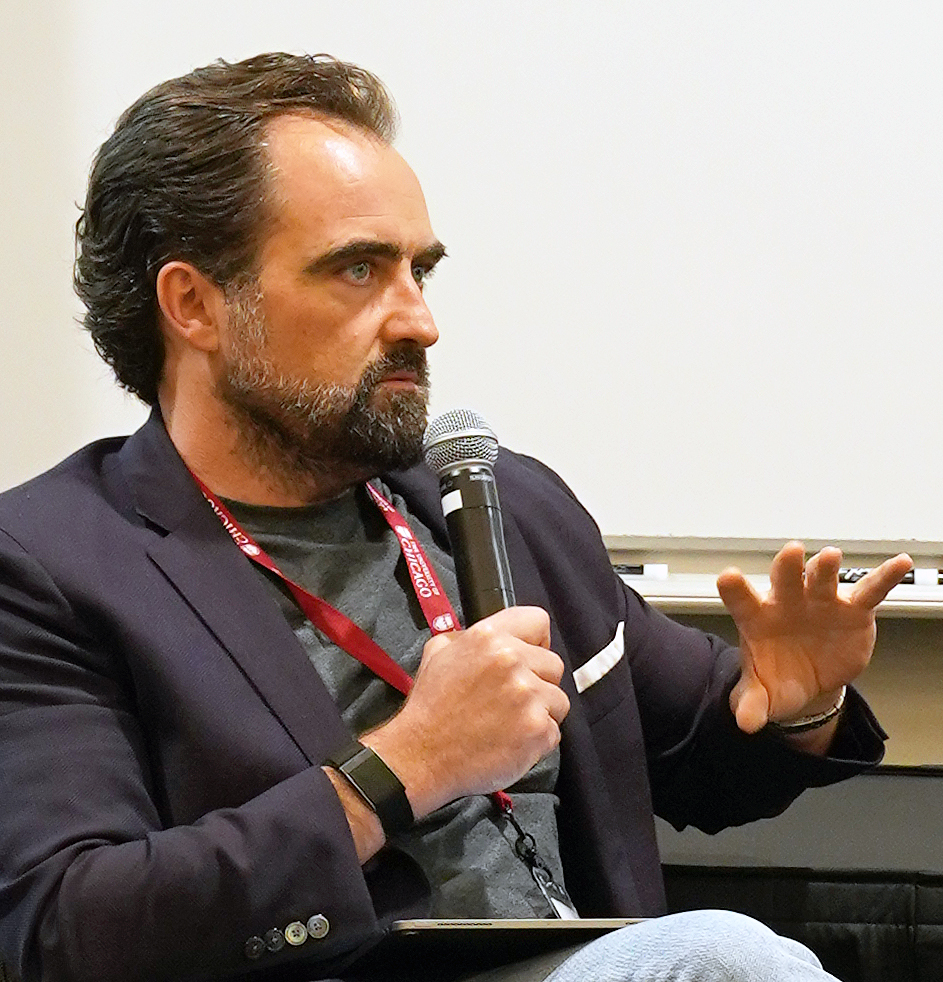At a time of accelerating disruption and proliferating opportunities across the business landscape, the fundamental lessons of corporate financial strategy have never been more vital for carving out paths to success for companies.
“Corporate financial strategy is central to all the decisions that make an organization successful,” says Borislava Karageorgieva, a corporate finance expert who leads two courses in the Strategic Financial Management certificate program at University of Chicago Professional Education (UCPE).
“And what makes an organization successful is the value it’s able to create. In corporate finance, we measure value, both tangible and intangible, and that’s why the demand for corporate financial strategy skills is always going to be there.”
With important applications at all levels of the organization—from middle management up to senior management—Karageorgieva notes that these skills are not only fundamental for moving up within an organization, they are essential knowledge when it comes to operating at the board of director’s level.
“Corporate financial strategy is a technical discipline, but intuition and experience play considerable roles as well,” says Karageorgieva, a Chicago Booth alumna and chartered financial analyst (CFA). “It’s a little bit of an art in that way. The more examples and scenarios you have at your fingertips, the more paths you’ll see to create value and act effectively in the present environment.”
Passion for the University of Chicago
Karageorgieva grew up in Sofia, the capital of Bulgaria, at a time of transformational change for the country. As a college student, she was fascinated by the challenges the nation faced as it transitioned from a planned economy to a market-based one. This fascination inspired her to study corporate finance.
“Globalization and competition were the watchwords of the day,” she says. “Businesses had to fundamentally change the way they operate to become internationally competitive. That just sounded very exciting and very interesting to me.”
After graduating, she moved to the United States for business school at Chicago Booth (then the University of Chicago Graduate School of Business), a well-known program especially for its free-market orientation.
“That worldview was really an enormous intellectual curiosity of mine and I was extremely happy to have the opportunity to pursue such a challenging and rewarding path,” she says. “I’ve remained passionately involved with the University to this day.”
In addition to the classes she teaches at UCPE, Karageorgieva currently leads the Chicago Booth Angels Network of Chicago, a nonprofit that serves as the angel investor group for UChicago alumni. Having co-founded two companies herself, she also mentors entrepreneurs and judges teams in the venture competitions through the Polsky Center and other accelerator programs at the University.
Broadly applicable skills
Corporate finance has been the central theme of Karageorgieva’s professional career. From boutique investment banking to work in financial due diligence and regulatory compliance, her focus has centered on how corporations deploy their capital, skills, and business models to create value.
“Corporate financial strategy is at the core of the company’s existence because it helps focus those business activities on value creation,” she says. “That’s what makes the field vital: it gives you the tools to assess whether an organization is meeting its objectives, mission, and goals.”
In “Corporate Financial Strategy” and “Decision-Making and Risk Management,” Karageorgieva imparts those tools and insights to students by drawing on her extensive experience in areas of corporate financial strategy like mergers and acquisitions, capital structure decisions, risk management, and more.
“The concept of risk is always directly tied to value creation, so the two classes together present the full spectrum of the discipline,” she says. “Companies have to create value, but they also have to make decisions about appropriate risk, so we always evaluate a return calibrated for the amount of risk that the company assumes.”
If “Corporate Financial Strategy” has a slightly more technical focus, Karageorgieva notes that both classes are strongly rooted in class discussion. Students share best practices from their professional experience as they explore and reflect on what has worked and what hasn’t.
“One great thing about corporate financial strategy is that you can really deepen your intuition and develop as a professional by learning from others and hearing examples from their experience,” she says.
“After all, these are transferable skills and broadly applicable across organizations and different fields, so the diversity of professional backgrounds we get in class adds excellent value and rich perspective to the curriculum.”



